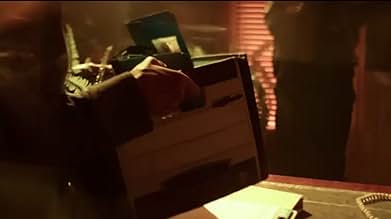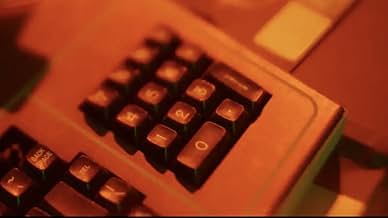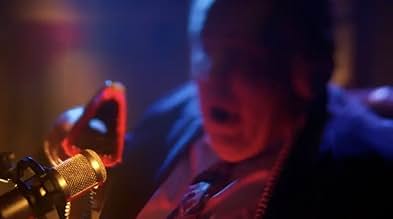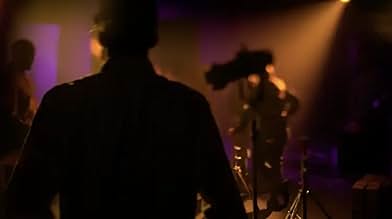अपनी भाषा में प्लॉट जोड़ेंSpinoff of Vice's Dark Side of the Ring that looks at '90s pop cultureSpinoff of Vice's Dark Side of the Ring that looks at '90s pop cultureSpinoff of Vice's Dark Side of the Ring that looks at '90s pop culture
- पुरस्कार
- कुल 1 नामांकन
एपिसोड ब्राउज़ करें
फ़ीचर्ड समीक्षाएं
Loved the first season, lots of amazing insights about cultural events and trends and all that.
Dropped it from a 9 to 7, is due to Season 2 seems to a very heavy focus on social justice, I think someone came in and was a BLM activist.
Just feel like there is so much more to the 90s as it was in the first season, and the pivot is so sharp. The only episode of season 2 I like is the UFC origins one.
Dropped it from a 9 to 7, is due to Season 2 seems to a very heavy focus on social justice, I think someone came in and was a BLM activist.
Just feel like there is so much more to the 90s as it was in the first season, and the pivot is so sharp. The only episode of season 2 I like is the UFC origins one.
I mean, it's not wrong and pretty much sums up a lot of the 90's influences but more focused on American events for the most part.
That said, it will FOREVER irk me that they always try to say "Beverly Hills 90210 was the first groundbreaking show about real teens" when Degrassi was already doing that before they ever showed up.
Watching Jason Priestly, being Canadian, agreeing with this bs in the documentary is just rich.
That said, it will FOREVER irk me that they always try to say "Beverly Hills 90210 was the first groundbreaking show about real teens" when Degrassi was already doing that before they ever showed up.
Watching Jason Priestly, being Canadian, agreeing with this bs in the documentary is just rich.
I felt nostalgic watching this series and it had some nice stories but I also felt like something was missing here. They only had 10 episodes so they had 10 stories to present to represent the entire decade of the 1990s, yet they went with stories like Beanie Babies, sock puppet or some night club in Los Angeles out of all the interesting topics they could have picked.
Also episodes felt drawn out and repetitive. The people they interviewed in each episode were knowledgeable about their topic but they all repeated the same things over and over. The storytelling in these episodes could have been a lot tighter.
Also episodes felt drawn out and repetitive. The people they interviewed in each episode were knowledgeable about their topic but they all repeated the same things over and over. The storytelling in these episodes could have been a lot tighter.
I've only watched season one so far and I've enjoyed the episodes. I'm a child of the 80s and 90s so watching this is like being back in the 90s being nostalgic for some of the best times of my youth. It's also a refreshing and deeply reflective experience, looking at the era with different lens now being much older and thanks to some information this documentary presents that I didn't know about at the time.
Like some reviewers pointed out, there are details that are left out in the episodes, and the series could probably have done better. But for a docuseries covering such a wide range of topics that spanned a decade, I think it did well.
I particularly enjoyed the episode on the Viper Room with information surrounding the scenes at the club that I'd never heard until now. I was a huge fan of River Phoenix from when I was a preteen in the late 80s after being struck by his raw and beautiful performance in Stand By Me, and his death, which happened when I was in high school was a traumatic event for the then-seventeen-year old girl. Three decades later my heart still aches when I think about him and his life cut too short. So many interviews and articles written about his life and death that I read or watched over the years and they always left questions. This documentary helped to fill that void. It was heartbreaking to remember it once again but thanks to the interviewees who were the regulars of the club and their stories of what kind of place it really was, I have more clarity and understanding. So thanks in particular for this episode.
Like some reviewers pointed out, there are details that are left out in the episodes, and the series could probably have done better. But for a docuseries covering such a wide range of topics that spanned a decade, I think it did well.
I particularly enjoyed the episode on the Viper Room with information surrounding the scenes at the club that I'd never heard until now. I was a huge fan of River Phoenix from when I was a preteen in the late 80s after being struck by his raw and beautiful performance in Stand By Me, and his death, which happened when I was in high school was a traumatic event for the then-seventeen-year old girl. Three decades later my heart still aches when I think about him and his life cut too short. So many interviews and articles written about his life and death that I read or watched over the years and they always left questions. This documentary helped to fill that void. It was heartbreaking to remember it once again but thanks to the interviewees who were the regulars of the club and their stories of what kind of place it really was, I have more clarity and understanding. So thanks in particular for this episode.
This show is by no means a bad one. The biggest flaw is that it tends to skew facts in order to fit a current year topic.
Unlike Dark Side of The Ring where it is presented impartially: some facts may be omitted/edited in order to tell the complete story overall; this show tells its own version of history from a certain point of "view". History dictates A leads to B leads to C. In this show A leads to C.
An example would be the Jerry Springer show somehow lead to Columbine. Columbine happened in 1999 and the narrator advocated to why schools allowed students to have access to guns? They conveniently failed to mention the Gun Free Schools Act of 1994.
Again, not a bad show, the topics are interesting and a fun stroll through memory lane but filtered facts bring it down.
Unlike Dark Side of The Ring where it is presented impartially: some facts may be omitted/edited in order to tell the complete story overall; this show tells its own version of history from a certain point of "view". History dictates A leads to B leads to C. In this show A leads to C.
An example would be the Jerry Springer show somehow lead to Columbine. Columbine happened in 1999 and the narrator advocated to why schools allowed students to have access to guns? They conveniently failed to mention the Gun Free Schools Act of 1994.
Again, not a bad show, the topics are interesting and a fun stroll through memory lane but filtered facts bring it down.
टॉप पसंद
रेटिंग देने के लिए साइन-इन करें और वैयक्तिकृत सुझावों के लिए वॉचलिस्ट करें
- How many seasons does Dark Side of the '90s have?Alexa द्वारा संचालित
विवरण
- चलने की अवधि44 मिनट
- रंग
इस पेज में योगदान दें
किसी बदलाव का सुझाव दें या अनुपलब्ध कॉन्टेंट जोड़ें

































